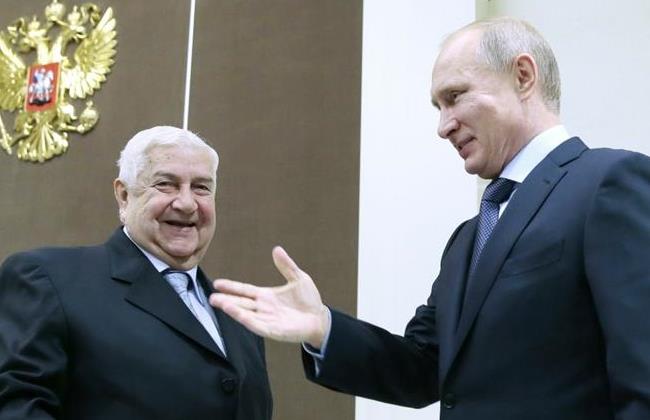Freezing the Syrian Crisis
Ali Ibrahim/Wednesday, 10 Dec, 2014
Asharq Al Awsat
Some may find the ideas promoted by the UN’s Envoy for Syria Staffan de Mistura frustrating, despite the fact they are highly realistic and pragmatic. His proposal to “freeze” the fighting in northern Syria before moving on to a political solution to the crisis as a whole may be the only realistic plan available, though it is likely to anger the Syrian opposition that participated in the Geneva I and II conferences in the hope of reaching a solution based on replacing Bashar Al-Assad’s regime.
De Mistura’s plan, however, does not offer a clear political goal or a way forward. Instead, it would entrench the status quo, currently characterized by the inability of either side to turn the tables on the other. It is based on the idea of minimizing the loss of human life and stopping the bloodshed but unless a radical shift takes place in terms of flow of weapons and regional and international support for either side, the fighting will continue and will only lead to more deaths and further destruction without reaching a resolution.
The problem with Syria is that the crisis has become extremely complex, so much so that nobody can control it. The battle is gradually becoming one between two equally bad sides, including militias that follow extremist organizations, exporting terrorism to the entire region. The truth is that the Syrian government is responsible for the crisis becoming this complicated. Had it dealt with protesters in 2011 through political means and met their demands, things would not have reached this point.
The complexity of the Syrian conflict is not limited to the situation on the ground, but can also be seen in the air, with the airstrikes being carried out simultaneously by both the Syrian government and the US-led international coalition, and Israel recently joining in. Despite this, the differences between the sides involved in the Syrian crisis are far greater than any similarities, particularly when it comes to Turkey, whose President Recep Tayyip Erdoğan rebukes Washington every now and then for not responding to his request to impose a no-fly zone along the Syrian border.
Here we should pause and consider the extent to which the discourse regarding Syria has changed over the past two years. If all sides concerned with the Syrian crisis examine this issue, it may serve as a beginning to the solution. What was proposed at the Geneva I and II conferences seems to have been based on incorrect information and distorted perceptions. Obviously, it was a major mistake for many in the opposition or the region to believe that there would be an international intervention in Syria similar to the NATO intervention in Libya, which would have tipped the balance against Assad. Muammar Gaddafi lacked what Assad has: a network of allies who are prepared to provide him with support and weapons for more than three years of intense fighting.
All of this is history now, today we are facing what is widely perceived as a global terrorist threat, one that requires a comprehensive response if it is to be defeated. Such a response would include training moderate rebel factions and dealing with the growing flow of refugees, who number in the millions. Many of Syria’s neighboring countries, particularly Lebanon, groan under the weight of this problem while humanitarian relief agencies are running out of resources.
In both cases, treating only the symptoms of the crisis will not lead to a comprehensive solution. Airstrikes may continue for years in order to combat terrorists who use guerrilla tactics and take advantage of the security vacuum in the areas they operate in. The worst case scenario for any person would be to find oneself living abroad in a refugee camp, not knowing when, and if, you will be able to return home, and gradually becoming a burden to others. In view of this situation, reaching a political solution that would reduce the suffering of the people of Syria becomes urgent. Perhaps, freezing the conflict may open the door for such a solution after all.


















